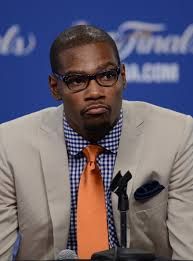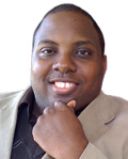Media
Athletes and the Spiral of Silence
Sports media's power over athletes
Posted February 22, 2015

At the end of the 2015 NBA All-Star Weekend, Kevin Durant, the 2014 NBA MVP became upset when a journalist asked a question about his coach and whether or not he would be able to retain his job. Durant, who has been known to be very protective of his teammates and the Oklahoma Thunder franchise in general, supplied an uncharacteristic angry response.
"You guys really don’t know…,” began his rift on the sports media and the journalists who cover the sport.
At one point Durant channeled Seattle Seahawks’ running back, Marshawn Lynch when he stated, “To be honest man, I’m here talking to y’all because I have to.” However, unlike Lynch, Durant is not known to be shy around journalists and he decided to expound on his statements:
...I really don’t care. Y’all not my friends. You’re going to write what you want to write. You’re going to love us one day and hate us the next. That’s a part of it. So I just learn how to deal with y’all.
In a response to a question about MVP voting, Durant delivered another salvo to the media. He stated:
You guys get too much power to vote on stuff (that), quite frankly, I don't think you know a lot about, not as much as we know about it. We play against these guys, we battle against these guys, we know what they say on the court, we know how they handle their teams, how they approach the game. Our vote should count. Our opinions should count. I don't think you guys know as much as we do and I don't see why you have more power than we do.
Durant had expressed his true feelings and provided a solid reason for his claims. However, within days he issued an apology:
I had a moment...Everybody in life has moments. You had one for sure before, but it’s not broadcasted like mine. I was more so trying to take up for my teammates, my coach and other guys in the league that get scrutinized and I don’t like it. Maybe I should shut up about it. I had one moment…I was told I shouldn’t cry ’cause everybody been through it. So I’m going to shut up.
The media blitz that followed his outcry on what he felt was an uninformed, fickle, biased and too powerful sports media convinced him to apologize and for the present, to remain quiet. In academic theory this process is called Spiral of Silence. This theory, put forth by Elisabeth Noelle-Neumann, posits that when people have ideas that run counter to their surrounding environment (media), are in a minority and the counter arguers possess enough power, a chilling effect occurs where those people become hesitant or fearful to express their true thoughts.
A good example of Spiral of Silence can be found in what occured after the attack on the Twin Towers on September 11, 2001. Immediately after the attack there was a steady drumbeat to war by citizens and politicians alike. Yet, there was a contingent of people who wanted to halt the rush to war and others who felt it was the wrong move entirely. To have expressed those thoughts one could have faced censure, ostracization or could have been called unpatriotic.
Regardless of whether or not a negative response will occur, the idea that it can is enough to make a person go along with public consensus or remain quiet. Which brings us back to the media.
As a result of Kevin Durant’s initial response to the journalists at the All-Star Weekend, comments were made by mainstream media’s biggest sports analysts, such as ESPN’s Skip Bayless, that Durant “is biting the hand that feeds him” and by Tony Kornheiser of Pardon the Interruption who said that Durant should “apologize” for criticizing the media. Rolling Stone even published an article titled Kevin Durant: Say Hello to the Bad Guy. Although Rolling Stone’s article wasn’t a condemnation of Durant, the mere suggestion that he could be a “Bad Guy” for saying that non-basketball players do not have a real sense of who the MVP is in the league or hold too much power over what happens in the NBA should be analyzed. Bayless and Kornheiser’s commentary seems to suggest that journalists, pundits and writers know that they are in a position of influence and that Durant could face sanctions as a result of their response to his comments.
Regardless of one’s feelings toward Durant’s comments, the question must be asked.
Is Durant right?
Has the media gained too much influence in sports? How much sway do they hold over athletes, coaches and organizations? As we have seen in recent cases, news organizations have arguably influenced key NFL decisions, such as in the case of Ray Rice, Adrian Peterson and to a lesser extent, U.S. Soccer’s Hope Solo. The continuous coverage and call by journalists for greater punishment and oversight can work for the good of society. However, when an athlete expresses displeasure with media or questions their ability to truly judge a sport, is journalistic vitriol a proper response?
Almost weekly, athletes make comments that express their true feelings, but in the following days these same athletes often apologize or retract their statements. When journalists criticize or complain are they also taking a look at themselves and their organizations or are they just ensuring that the offender never gets out of line again? Especially if they think athletes are "biting the hand that feeds" them.
Final Thoughts
Whether or not one agrees with an athlete’s stance on an issue, can we have a true debate on issues if people are too intimidated to speak up or out?
References
Houston News
Ok News
ESPN
CBS News




